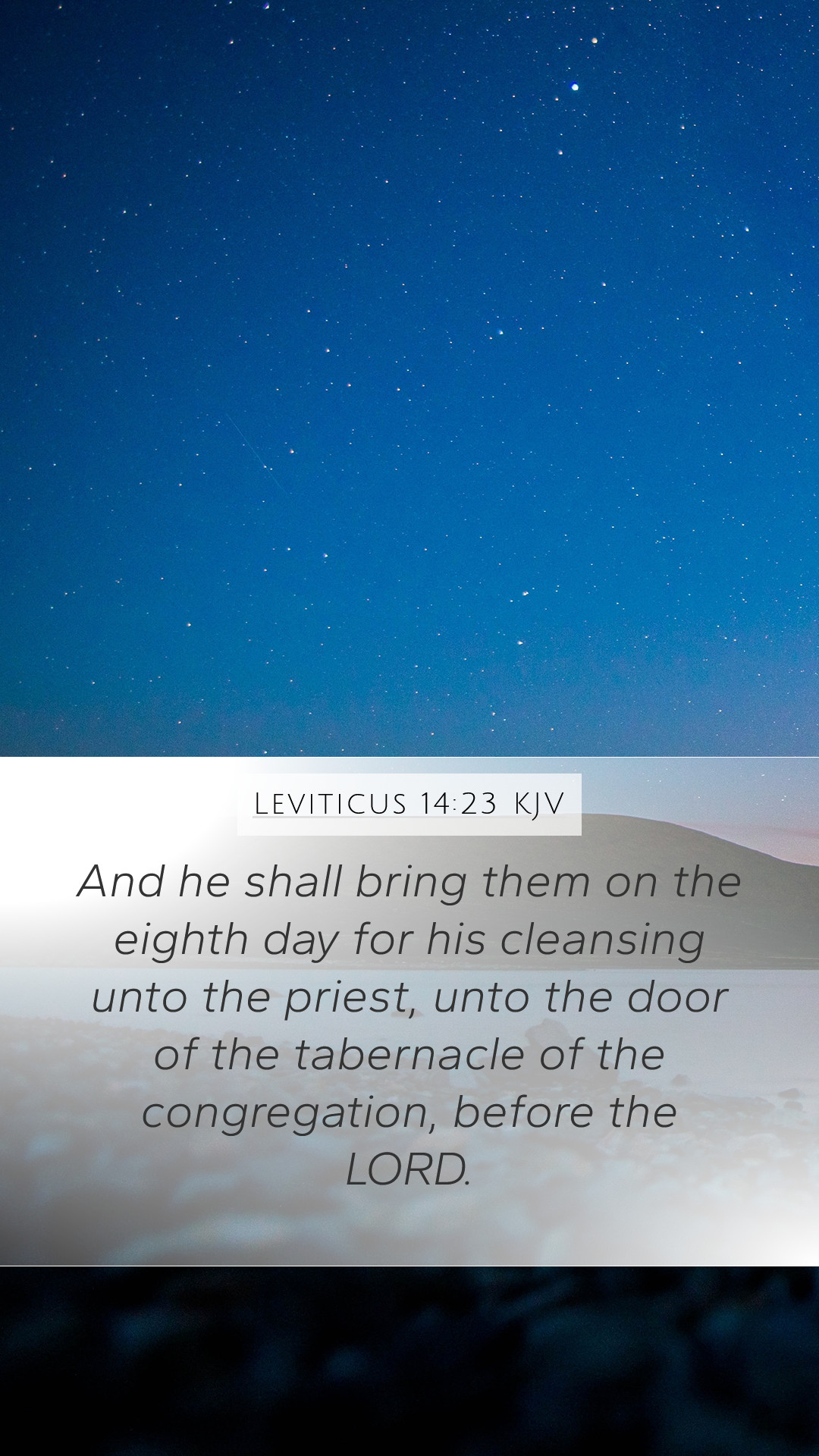Understanding Leviticus 14:23
Leviticus 14:23 states: "And on the eighth day he shall take two lambs without blemish, and one ewe lamb of the first year without blemish, and three-tenths deals of flour for a meat offering, mingled with oil, and one log of oil."
This verse is part of the ceremonial laws pertaining to leprosy, a significant concern in the ancient Israelite community. The ritual described is intended to purify a person who has been healed from leprosy, marking their reintegration into society and worship.
Bible Verse Meanings and Interpretations
The first part of the verse emphasizes the importance of without blemish, signifying that the sacrifices must be pure and unblemished before God. This concept reflects the character of Christ, who is seen as the ultimate sacrifice. Both Matthew Henry and Adam Clarke highlight the significance of the lamb as a symbol of innocence and purity. Matthew Henry elaborates on how the sacrificial system elucidates God's desire for atonement and reconciliation.
Symbolism of the Sacrifices
- Lambs for Purification: The two lambs represent the duality of sacrifice for both sin and physical restoration.
- Ewe Lamb: The inclusion of a ewe lamb signifies the offering of life's best in dedication to God.
- Flour and Oil: The fine flour mingled with oil reflects the grain offerings in worship, symbolizing gratitude and the acknowledgment of God's provision.
Historical Context of Biblical Practices
Understanding the historical context in which Leviticus was written is imperative for grasping its significance. In ancient Israel, leprosy not only carried dire physical ramifications but also social and spiritual. The ritual law provided a pathway for reinstatement into community life, underscoring God's mercy.
Bible Study Insights
In applying Leviticus 14:23 to modern life, one can draw parallels to themes of restoration and the need for spiritual cleansing. Albert Barnes notes that the ritual signifies God's continual offer of forgiveness and the requirement of coming to Him with an honest heart.
Application of the Verse
When analyzing this verse in a practical context, one might ask: How can we approach God for purification and healing today? The sacrifices outlined remind Christians of the ultimate sacrifice made by Jesus for eternal cleansing, inviting believers to reflect on their own repentance and restoration journey.
Additional Reflections
Additional nuances from public domain commentaries reveal that the eighth day is significant in the ritual, marking the completion of a cycle and the commencement of a new spiritual reality. This points toward the idea of resurrection and renewal, resonating with the overarching themes of redemption found throughout scripture.
Related Bible Cross References
- Exodus 12:5 - Significance of the Passover lamb.
- 1 Peter 1:19 - Christ, the lamb without blemish.
- Hebrews 9:14 - The blood of Christ for purification.
For those seeking deeper understanding, this analysis can aid in Bible study groups, providing a robust framework for discussing Bible study topics relevant to personal growth and community development. Exploring the meaning of Bible verses like Leviticus 14:23 allows believers to enrich their knowledge and deepen their faith.
Conclusion
Leviticus 14:23 serves as a profound reminder of the importance of purity, sacrifice, and the mercy of God. Through careful study and reflection, individuals can find Bible study resources that explore themes of redemption, offering insights into their spiritual lives and community interactions.


